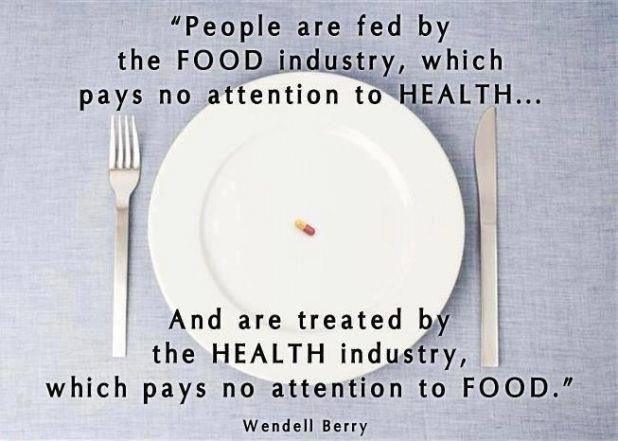Action Alert

Story At-A-Glance >> Artisans can avoid some of the worst provisions of FSMA by qualifying as a retail food establishment (RFE). >> FDA’s proposed RFE definition change would limit the sales venues that artisans can count in qualifying as an RFE. >> Submit your comments to FDA by midnight June 8, 2015 |
June 8 is the last day to comment on the “Registration of Food Facilities” rules proposed by the Food and Drug Administration (FDA). The most important provision for small farmers and artisan food producers is a proposed change to the definition of “retail food establishment” (RFE).
Under federal law, a business qualifying as a retail food establishment is exempt from registering as a food facility with FDA and also from a number of other requirements imposed by the FDA Food Safety Modernization Act (FSMA) which amended and expanded the Federal Food Drug and Cosmetic Act (FD&CA). FSMA poses a significant threat to the local food system by forcing a one-size-fits-all regulatory scheme on small-scale food producers. The best protection from the FSMA threat is to keep small farmers and artisan food producers out of the FDA Food Facility Registration database.
By changing the definition of RFE in a way that ignores the intent of Congress, FDA is attempting to improperly limit the sales venues that would qualify for the exemption. Although farmers who have a majority of their sales come from direct-to-consumer transactions qualify as RFEs, artisans do not necessarily receive similar treatment under FDA’s proposal.
For reasons set out below, the chances of artisan producers staying in business decrease if they have to register with FDA as a Food Facility. It is critical that artisan producers be exempt from the registration requirements.
If you have not yet done so, please submit comments asking FDA to revise its proposed definition specifically by removing the limitation, “located on a farm” in Section 1.227(b)(11). For details and other concerns, see the Action Alert.
Qualifying as an RFE
A review of FDA’s April 9 Federal Register notice reveals how much easier life would be for artisan producers if they qualified as a retail food establishment. According to Sec. 102(c) of FSMA, a business whose primary function is selling food products direct to consumers is to be considered an RFE.1 To qualify as an RFE, an artisan producer must derive more than half of its sales from direct-to-consumer transactions.
FDA’s proposal allows only businesses “located on a farm” to count not only sales made on the farm, but also sales made at roadside stands and farmers markets, through community supported agriculture (CSA) programs, from door to door, and via mail, catalog and internet including online farmers markets and online grocery delivery. Artisan producers can only factor in direct sales made at the place where their business is located; direct sales made at roadside stands, farmers markets, through the internet and mail order do not count toward qualifying as an RFE.
If artisans can’t get the same treatment under the proposed regulations as the farmers, it is substantially more likely that they will be facing the following requirements under FSMA and FD&CA:
-
1. Registration as a Food Facility with the FDA. FSMA requires that all food facility registrations to “contain an assurance that FDA will be permitted to inspect the facility” [80 FR 19160]. The agency stated in the Federal Register notice that “specifically, FDA has used the food facility registration list to identify food facilities for inspection [80 FR 19173]. FDA can seek criminal penalties against non-exempt food businesses shipping in interstate commerce that aren’t registered [21 U.S.C. 331(d)].
2. Development of a HARPC plan. Registered food facilities have to comply with the section of the FD&CA [21 U.S.C. 350g – Hazard Analysis Risk Based Preventative Controls (HARPC)] that requires a written food safety plan “to evaluate the hazards that could affect food manufactured, processed, packed or held by a facility, identify and implement preventive controls, monitor the performance of these controls, monitor the performance of these controls, and maintain records of the monitoring.” Qualified registered facilities with annual sales of less than $500,000 are exempt from the HARPC requirement but FDA is currently trying to weaken this exemption through the rule-making process. [79 FR 58524, 58589–proposed regulation 21 CFR 117.251]
3. More FDA inspections. 21 U.S.C 350j requires FDA to mandate more frequent inspections for those registered facilities that they agency identifies as high-risk. An artisan producers such as an off-farm cheesemaker would be subject to more inspections unless their business would fall under the definition of retail food establishment.
4. FDA’s mandatory recall power. Only registered facilities are subject to FDA’s mandatory recall power under the FD&CA. [21 U.S.C. 350L]
5. Assessment of re-inspection fees. Only registered facilities are subject to inspection fees [80 FR 19163]; under FD&CA the agency can’t charge for initial inspections but if FDA finds a problem at a facility it has the power to assess and collect fees from that business for any re-inspection. FDA’s re-inspection fee for fiscal year 2015 is $217 per hour [79 FR 44802]; the agency has all the incentive to find something wrong at a facility even if there is nothing impacting food safety.
6. Compliance with reporting. Failure to comply with paperwork requirements (e.g., not submitting a report to the Reportable Food Registry) could result in criminal penalties for registered Food Facilities. [21 USC 350f and 21 USC 331(e)]
The fewer regulatory requirements of the FD&CA a producer is subject to, the greater their chances of success. The cost of compliance with requirements like HARPC can easily put artisan producers out of business. They need the protection that qualifying as a retail food establishment provides. You can help by submitting comments to FDA.
==========================
1 FSMA, sec. 102(c)
(1) RETAIL FOOD ESTABLISHMENT- The Secretary shall amend the definition of the term `retail food establishment’ in section in 1.227(b)(11) of title 21, Code of Federal Regulations to clarify that, in determining the primary function of an establishment or a retail food establishment under such section, the sale of food products directly to consumers by such establishment and the sale of food directly to consumers by such retail food establishment include —
-
(A) the sale of such food products or food directly to consumers by such establishment at a roadside stand or farmers’ market where such stand or market is located other than where the food was manufactured or processed;
(B) the sale and distribution of such food through a community supported agriculture program; and
(C) the sale and distribution of such food at any other such direct sales platform as determined by the Secretary.

Wendell Barry said, “People are fed by the food industry, which pays no attention to health, and are healed by the health industry, which pays no attention to food.” Who should get credit for this great meme? Let us know
TAKE ACTION: Registration of Food Facilities
SUBMIT COMMENTS ONLINE:
www.regulations.gov/#!submitComment;D=FDA-2002-N-0323-0168
Instructions:
1. Using the sample letter below as a starting point, write your comment on your computer and save it as an electronic file.
2. In the comment box, type “see attached,” and then upload the file with your comments.
3. Uncheck the box that says “I am submitting on behalf of a third party,” so that you do not have to enter an organization name.
4. For category, select “individual consumer” or “private industry.” Click “continue.”
5. Check the box that you have read and understood the statement, and be sure to click “submit comment.” You should be taken to a new screen with a confirmation number.
The deadline for comments is midnight Monday, June 8, 2015.
SAMPLE LETTER
Please personalize your message–it will make a much bigger impact. Click here for more information included in the original Action Alert.
I am a ____________ (farmer, food manufacturer, local foods consumer…).
I support the list of direct-to-consumer venues in section 1.227(b)(11)(iii), as including door-to-door sales, mail, catalog and internet orders, non-profit events, and fairs.
I urge the FDA to make the following changes to its proposed rule for facility registration:
-
1. Comply with the Tester-Hagan language of FSMA, and exempt all facilities that sell more than half of their products directly to consumers at roadside stands, farmers markets, and similar locations. The exemption should not be limited to facilities that are located on farms.
2. Similarly, the definition of roadside stands should not be limited to farmers, and the definition of farmers market should recognize that food vendors besides farmers may also sell at such markets. I agree that the majority of the vendors at a market should be farmers for it to be classified as a “farmers market,” but artisan food providers have an important role in these markets as well.
3. Clarify the process for getting a waiver from registering electronically. The regulation should specifically recognize religious objections and lack of reasonable access to the internet as reasons to grant a waiver, in addition to such other issues as may be raised by applicants.
4. Provide an exemption for those who do not have email addresses as a regular contact.
5. Eliminate the requirement for a D-U-N-S number or make it optional information to be submitted if the location already has a D-U-N-S number. It does not make sense to require a small business to register with Dun & Bradstreet for the sole reason of then also registering with the FDA.
[State]